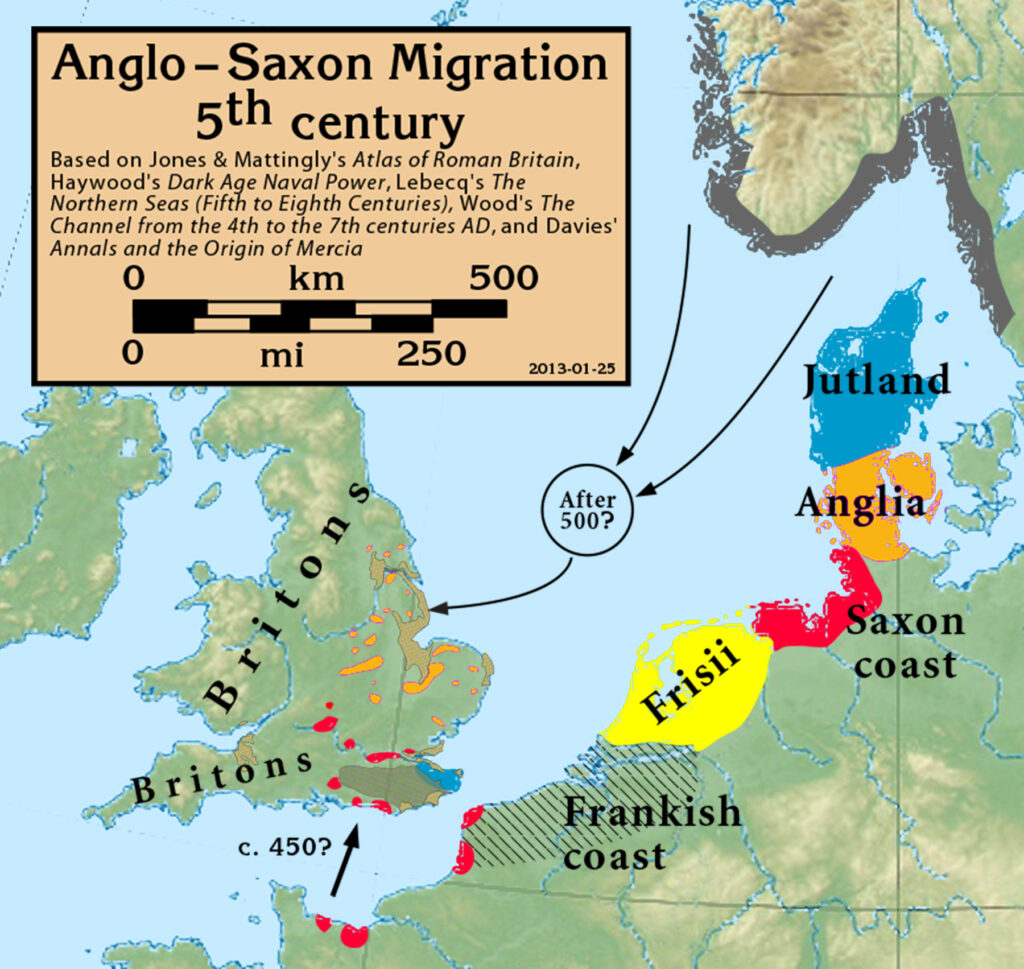The Advent of the Anglo-Saxons 2: New Kings on the Block

The traditional view of our history was that the Anglo-Saxons invaded Britain, supplanting the native Britons and pushing them westwards until they became the Welsh. It was an early example of ethnic cleansing, although a long-winded one. The conquest of Britain was a slow-motion affair. It took centuries, with fortunes fluctuating hugely for the first two centuries. But in the end the Anglo-Saxons prevailed. The Britons became Welsh – a word derived from wealh in Old English, meaning ‘foreigner’ but with a secondary meaning of ‘slave’ – and the Germans became the English. Further north were the Picts while the Scots were still living in Ireland. It was all very mixed-up!
This was the story as told by Gildas. Since he was an eye witness, his testimony was acceptyed by scholars. But in the later decades of the 20th century, a new generation of researchers began to question this story. Archaeological analysis of tree pollen indicated that there had been very little change in tree-cover levels during this period. But this was when whole regions were supposedly depopulated, the native Britions fleeing before the Anglo-Saxons (some went overseas, founding Brittany in France). But if all the farmers had really fled, then land should have turned to scrub, wood and forest. However, there was no evidence for these changes in the pollen record: the land seemed to have stayed under the same levels of cultivation.
So maybe the farmers had stayed put throughout, ploughing and sowing and reaping, while bands of warriors fought their little wars, one elite – pagan and Anglo-Saxon – displacing another – Christian and Briton. Having replaced the men in charge, new Anglo-Saxon rulers imposed their language and culture on the peasant farmers who had remained, farming the land as they had always done. According to this view, there was no wholesale replacement of populations. Rather, warbands of Anglo-Saxons arrived, battled and defeated the native warrior elite, and installed themselves at the top of the social pyramid. The new Anglo-Saxon warrior elite took wives from the Britons but they insisted that their language and culture should dominate in their kingdoms.
Not all historians accepted this interpretation of the evidence. In particular, specialists in place names pointed out that there are very few place names in England that derive from the Celtic. The vast majority derive from Old English. But if a native peasantry had remained working the land for a new set of Anglo-Saxon masters, then we would expect there to be many more names of Celtic origin, for the simple reason that the new lord of the manor would ask his peasants, “Hey, that copse over there, what’s it called?” Hearing the answer, he’d then tell his compliant peasants, “Go chop down some trees from ‘coedlan’.” A new lord would use the names in place to order his peasants around rather than inventing a whole new set of names for the simple reason that then his peasants would know what he wanted them to do.
So, did the Anglo-Saxons arrive en masse, conduct a programme of ethnic cleansing and occupy the land, or was it a case of a top-level takeover that gradually imposed its language and culture on the lower levels of society? The evidence was inconclusive and scholars were divided. Some other way of answering the question was necessary.
0 Comments